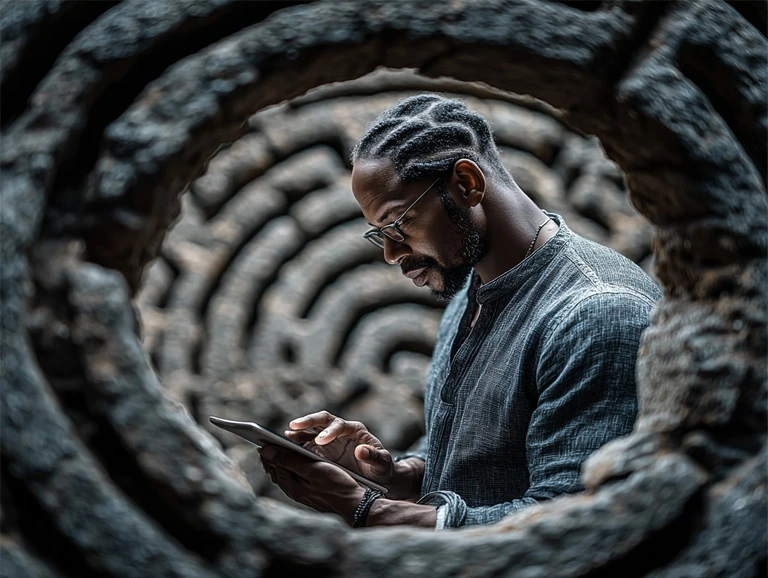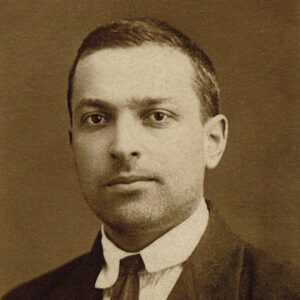desapalencao by Angel Candeaux
desapalencao by Angel Candeaux is a deep, structured approach to couples therapy that brings clarity, dissolves blockages, and aims for lasting transformation.
Instead of digging through the past for traumatic experiences, we focus on what shows up here and now from your personal history: ingrained reaction patterns that once protected you but now hold you back. These so-called “interrupted learning processes” are identified, made conscious, and actively expanded—so you can gain more freedom of action in your everyday life.
The goal isn’t short-term relief, but long-term emotional resilience and structural relationship competence.
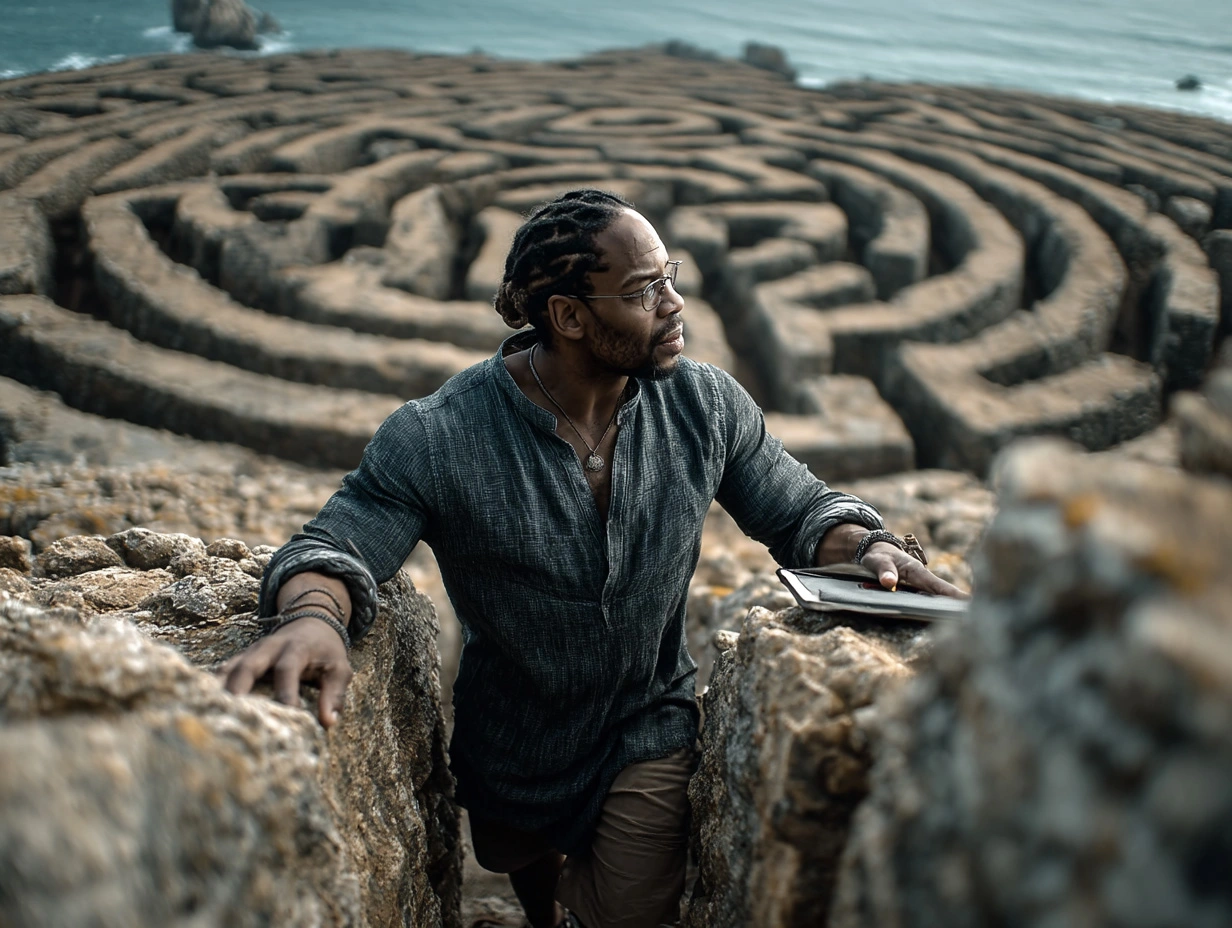
desapalencao combines modern psychology with practical everyday wisdom from various cultures – grounded, proven, and free of esoteric fluff.
“Happiness is not a gift from the gods – it’s the result of inner attitude.”
Erich Fromm (1900 – 1980)
YOUR PATH TO CHANGE
This method is built on a clear structure: each session lasts at least 90 minutes, is intensive, and designed to recognize, understand, and consciously develop entrenched patterns.
Instead of getting lost in abstract theories, the method promotes direct self-exploration: the therapist listens, asks precise questions, brings unconscious reactions to light – and reflects what would otherwise remain hidden (“blind spots”).
Between sessions, everyday tasks continue the process of change. This method is ideal for people who aren’t looking for traditional talk therapy, but a structured, in-depth alternative in individual and couples work – one that creates real movement, both internally and relationally.
Growth isn’t a comfort program – expanding your comfort zone with intention
Change requires movement – but not overwhelm. In the therapeutic process, it’s not about permanently leaving your comfort zone, but about expanding it deliberately. You’ll be supported in questioning familiar reaction patterns step by step and opening up to new experiences – even when they feel unfamiliar or uncomfortable at first.
The key is: not all at once. Instead, targeted and manageable challenges help you not only think differently, but experience real change. With each step, your confidence in your ability to grow increases – and what once felt difficult becomes part of your new normal.
Typical methodological elements in a session
The goal is to make blind spots visible and get stuck patterns moving again through new learning experiences. Here are some typical elements used in the process:
Understanding and decoding reaction patterns
Recognizing blind spots for deeper self-awareness
Role reversal & perspective shifts in dialogue and action
Practicing new behaviors
Clarity in complex situations

“Only when you understand yourself can you truly understand the other.”
Zhuāngzi, Chinese philosopher and poet (c. 365–290 BCE)
Between origin and transformation
The desapalencao approach is based on three interconnected schools of thought that together form a new, structured type of therapy – beyond traditional models and free from any esotericism.
- Cultural-historical psychology (Lev Vygotsky)
Vygotsky saw development as a socio-cultural process shaped by its historical context. Learning doesn’t happen in isolation, but in relationship – through mirroring, dialogue, and shared action. For him, development is not purely internal, but deeply relational. This perspective forms the foundation for the structured work with reactions and behavior patterns in the present moment.
- Critical Theory of the Frankfurt School
Thinkers like Theodor W. Adorno, Max Horkheimer, Erich Fromm, and Herbert Marcuse explored how ideology, society, and power dynamics shape the way we think. They criticized a psychology that views the individual in isolation, without considering their embeddedness in social structures. A couple’s relationship, too, is not an isolated phenomenon – it’s shaped by cultural narratives and role patterns that often remain unconscious.
- Symbolic and pragmatic anthropology
desapalencao draws on what many traditional cultures have practiced for centuries: simple, repeatable actions with powerful impact. Symbolic anthropology (including Victor Turner, Mary Douglas, and Claude Lévi-Strauss) has shown that rituals, gestures, and symbols are not empty traditions – they help organize emotions, strengthen identity, and stabilize relationships.
desapalencao brings these insights into everyday life – without belief systems or spiritual staging. Instead, it uses functional symbols: clear actions that provide orientation, build connection, and support inner stability.
This creates a path where change doesn’t happen through theory, but through experience – step by step, day by day.
- Cultural-historical psychology (Lev Vygotsky)
Vygotsky saw development as a sociocultural process. Learning doesn’t happen internally, but in relationship – through mirroring, dialogue, and shared action. For him, development is not purely internal but fundamentally interpersonal. This perspective forms the foundation for the structured work with reactions and behavior patterns in the here and now.
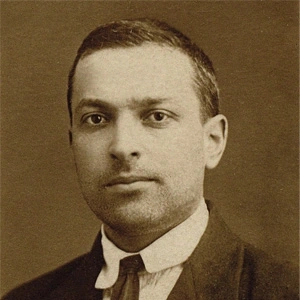
- Critical Theory of the Frankfurt School
Thinkers like Theodor W. Adorno, Max Horkheimer, Erich Fromm, and Herbert Marcuse explored how ideology, society, and power dynamics shape the way we think. They criticized a psychology that views the individual in isolation, without considering their embeddedness in social structures. A couple’s relationship, too, is not an isolated phenomenon – it’s shaped by cultural narratives and role patterns that often remain unconscious.
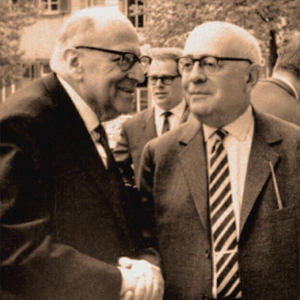
- Symbolic and pragmatic anthropology
desapalencao draws on what many traditional cultures have practiced for centuries: simple, repeatable actions with powerful impact. Symbolic anthropology (including Victor Turner, Mary Douglas, and Claude Lévi-Strauss) has shown that rituals, gestures, and symbols are not empty traditions – they help organize emotions, strengthen identity, and stabilize relationships.
desapalencao brings these insights into everyday life – without belief systems or spiritual staging. Instead, it uses functional symbols: clear actions that provide orientation, build connection, and support inner stability.
This creates a path where change doesn’t happen through theory, but through experience – step by step, day by day.
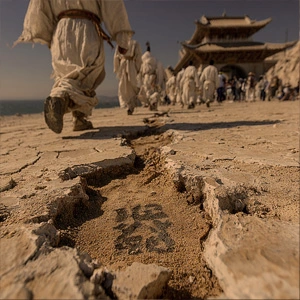
More than just an introduction
Our work begins with a real session – not with small talk.
You’ll get a direct sense of how I work: clear, structured, and empathetic.
WHAT TO EXPECT

A full trial session
You’ll experience firsthand how I work as a psychologist and couples therapist – no detours, we dive straight into your dynamic.

A concrete analysis

A clear decision on both sides
I only work with people who are truly ready to create change – that’s the only way real transformation can happen. You’ll feel right away whether this path is right for you.
WHY THIS MATTERS
In the first session – whether online or at my couples therapy practice in Berlin – you’ll see whether my approach is the right fit for you. The high success rate comes from clear strategies, tangible progress, and visible results starting from the very first session.
Your trial session is free – and it might be the beginning of real change.
To book an appointment online, we naturally need your contact details. By using the calendar, you agree to this data being stored and processed.
Further information